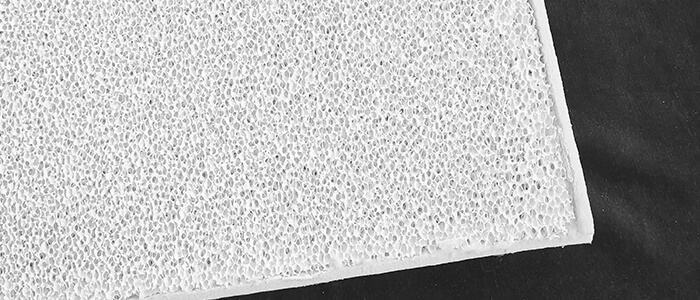In the realm of metal casting, alumina foam ceramic filter boards play a pivotal role in ensuring the quality and precision of aluminum alloy products. Understanding the key factors that influence their high-temperature performance is crucial for optimizing their effectiveness in demanding industrial applications.
Material Quality and High-Temperature Performance:
The quality of the alumina ceramic material used in filter boards is a fundamental determinant of their high-temperature performance. High-purity alumina ceramics typically exhibit superior heat resistance, enabling them to withstand extreme temperatures with stability and reliability.
Porosity and Thermal Stability:
The porosity of filter boards impacts their thermal conductivity and thermal expansion coefficient, crucial factors for maintaining structural integrity at high temperatures. Optimal porosity levels contribute to enhanced stability and durability in extreme heat conditions.
Structural Design and Heat Resistance:
The structural design of filter boards plays a significant role in their heat resistance capabilities. Well-engineered designs help mitigate thermal stress concentration, enhancing the boards’ ability to withstand high temperatures over prolonged periods.
Manufacturing Processes and Durability:
The quality and precision of manufacturing processes directly influence the structural integrity and stability of filter boards. Robust manufacturing techniques ensure that filter boards maintain their performance and durability under high-temperature conditions.
Thermal Expansion Coefficient Matching:
The thermal expansion coefficient of filter boards must align with that of the molten metal to prevent cracking or deformation at high temperatures. Proper matching ensures compatibility and longevity in harsh thermal environments.
Environmental Factors and Performance:
The operating environment, including temperature ranges, atmospheric conditions, and interactions with other materials, significantly impact the high-temperature performance of filter boards. Understanding and optimizing these factors are essential for maximizing the boards’ effectiveness and longevity.
Conclusion:
In conclusion, the high-temperature performance of alumina foam ceramic filter boards is influenced by a combination of factors, including material quality, porosity, structural design, manufacturing processes, thermal expansion coefficient, and environmental conditions. By considering these critical elements and selecting filter boards tailored to specific application requirements, industries can leverage the full potential of these boards in high-temperature environments, ensuring durability, stability, and optimal performance in metal casting processes.
Keywords: alumina foam ceramic filter boards, high-temperature performance, material quality, porosity, structural design, thermal expansion coefficient, manufacturing processes, environmental factors, metal casting.


